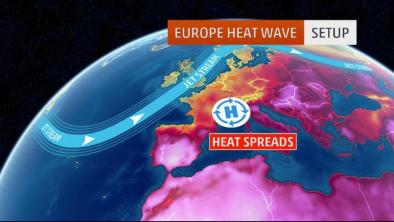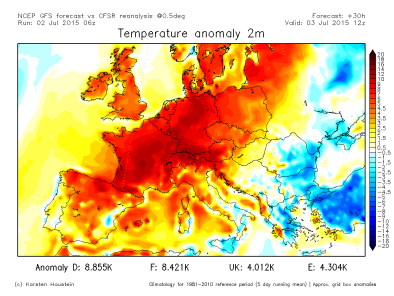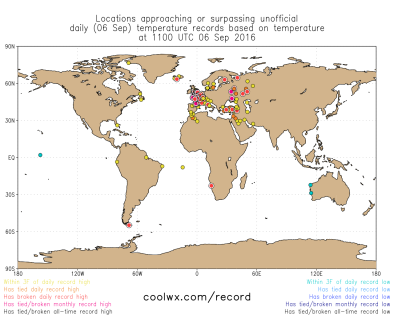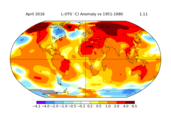Central European Heat Wave June - July 2015
An extreme summer heat wave set temperature records across Europe in late-June and early-July of 2015, including a new all-time hot temperature record in Germany, which experienced 104.4°F (40.2°C) heat on July 5 in the town of Kitzingen. The 2015 summer extreme hot temperature occurred in the context of a decade of summer warming and increases in hot temperature extremes. Human-caused climate change was a "major factor in setting the conditions for the development of the 2015 heat wave," according to a 2016 climate change attribution study. One of the strongest findings of climate science is that global warming amplifies the intensity, duration and frequency of extreme heat events.






Heat records shattered in central Europe heat wave
A heat wave brought record temperatures across Europe during late-June and early-July. On July 1, London experienced its hottest July maximum temperature on record: 98.1°F (36.7°C). Paris recorded its second hottest day ever on July 2, with a high temperature of 103.5°F (39.7°C), and Berlin experienced its highest temperature on record, 100.2°F (37.9°C), on July 4.
On July 5, Germany set a new all-time, nation-wide hot temperature record, reaching 104.4°F (40.2°C) in the town of Kitzingen.[1]
Climate change identified as a "major factor"
Model experiments positively identified human-caused climate change as a "major factor in setting the conditions for the development of the 2015 heat wave."[1]
A 2016 attribution study by Sippel et al. confirms that human-induced climate change has contributed to the increase in the frequency and intensity of short-term heat waves and heat stress, such as the summer 2015 event in central Europe.[1]
The 2015 summer extreme hot temperature occurred in the context of a decade of summer warming and increases in hot temperature extremes.







